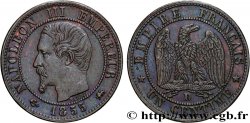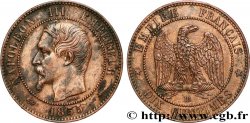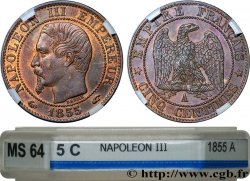fme_591591 - SECOND EMPIRE Médaille, Traité de commerce franco-anglais
240.00 €(Approx. 259.20$ | 199.20£)
Quantity
Add to your cart

Type : Médaille, Traité de commerce franco-anglais
Date: 1860
Metal : copper
Diameter : 57,5 mm
Orientation dies : 12 h.
Engraver MERLEY Louis (1815-1883)
Weight : 94,5 g.
Edge : lisse + abeille CUIVRE
Puncheon : Abeille CUIVRE
Coments on the condition:
Très bel exemplaire à la patine marron. Traces de manipulation dans les champs. La médaille est conservée dans sa boîte d’origine
Catalogue references :
Obverse
Obverse legend : NAPOLÉON III - EMPEREUR.
Obverse description : Tête laurée à gauche de Napoléon III. Signé : L. MERLEY .F.
Reverse
Reverse legend : NAPOLÉON III RÉGNANT // À L’EXERGUE : TRAITÉ DE COMMERCE AVEC L'ANGLETERRE. 23 JANVIER 1860 / ENQUÊTE FAITE PAR LE CONSEIL SUPÉRIEUR / DU COMMERCE / M THEODORE MORIN.
Reverse description : Minerve, casquée, vêtue à l’antique, réunit la France et l'Angleterre autour d'un autel où elles signent un parchemin déroulé sur lequel figure : FRANCE / ANGLETERRE. Signé : L. MERLEY .F.
Commentary
Cet exemplaire fut décerné à Monsieur Théodore Morin.
Le 15 janvier 1860, Le Moniteur, journal officiel de l'Empire français, publie une lettre de Napoléon III à son ministre d'État, le banquier Eugène Fould. « Depuis longtemps, écrit l'empereur, on proclame cette vérité qu'il faut multiplier les moyens d'échanges pour rendre le commerce florissant ; que sans concurrence l'industrie reste stationnaire et conserve des prix qui s'opposent aux progrès de la consommation. » Ce manifeste libre-échangiste annonce un changement radical de politique commerciale de la France.
Quelques jours plus tard, un traité de commerce est signé entre la France et le Royaume-Uni, les deux premières puissances économiques d'alors, par Michel Chevalier, ancien saint-simonien et Richard Cobden, qui, en 1846, après quinze ans de luttes, était parvenu à obtenir la suppression unilatérale des droits anglais sur le blé, les fameuses « corn laws ».
cf. http://www.latribune.fr/opinions/tribunes/20130701trib000773334/libre-echange-le-precedent-de-1860.html.
Le 15 janvier 1860, Le Moniteur, journal officiel de l'Empire français, publie une lettre de Napoléon III à son ministre d'État, le banquier Eugène Fould. « Depuis longtemps, écrit l'empereur, on proclame cette vérité qu'il faut multiplier les moyens d'échanges pour rendre le commerce florissant ; que sans concurrence l'industrie reste stationnaire et conserve des prix qui s'opposent aux progrès de la consommation. » Ce manifeste libre-échangiste annonce un changement radical de politique commerciale de la France.
Quelques jours plus tard, un traité de commerce est signé entre la France et le Royaume-Uni, les deux premières puissances économiques d'alors, par Michel Chevalier, ancien saint-simonien et Richard Cobden, qui, en 1846, après quinze ans de luttes, était parvenu à obtenir la suppression unilatérale des droits anglais sur le blé, les fameuses « corn laws ».
cf. http://www.latribune.fr/opinions/tribunes/20130701trib000773334/libre-echange-le-precedent-de-1860.html.







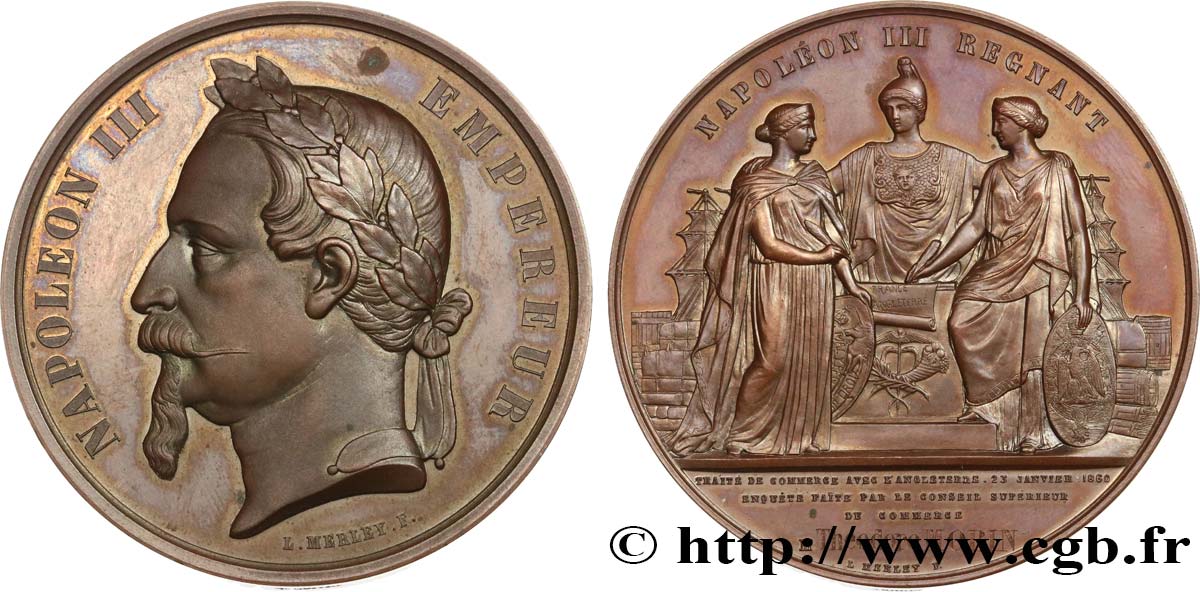
 Report a mistake
Report a mistake Print the page
Print the page Share my selection
Share my selection Ask a question
Ask a question Consign / sell
Consign / sell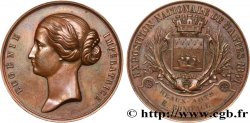
 Full data
Full data

